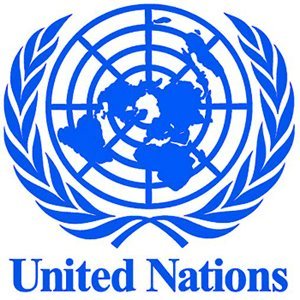Yesterday, I blogged about the Nuclear Weapons Convention being considered by the UN. One hundred and seven member states are supporting a proposal to eliminate all nuclear weapons on Earth. Twenty nations voted against the proposal. Today I am going to go into more detail about the politics surrounding of the proposal.
Although, Barack Obama campaigned on the elimination of nuclear weapons in 2008, now his administration is offering reasons why the new push for nuclear disarmament is a bad idea. Administration officials point out that increasing tensions with Russia and Russia's nuclear belligerency, increasing tensions with China in the South China Sea and the hysterical threats of a nuclear armed North Korea make this a bad time to be considering the total nuclear disarmament called for in the new proposal. The critics say that passing this proposal would be counter-productive because it might serve to weaken the Nuclear Non-proliferation Treaty (NPT) that currently binds the U.S. and Russia.
The supporters of the proposal say that the U.S. administration is exaggerating the problems that would be caused by the passage of the proposal. Their idea is that having a legal framework for the elimination of nuclear weapons would increase public pressure on decision makers to eliminate nuclear weapons. The supporters could also point out that both Russia and the U.S. are currently accusing the other of violation of the NPT.
The U.S. administration is putting pressure on allies in NATO and South East Asia to reject the proposal. In this regard, the U.S. is in league with the U.K., France, China and Russia, all of whom have nuclear weapons and are apparently not eager to work on eliminating them and, like the U.S., are opposing the new U.N. proposal which is mainly being pushed by non-nuclear nations which are at risk from the arsenals of the nuclear nations.
Austria, Brazil, Mexico, and South Africa launched the effort to convene new conferences on nuclear disarmament in 2017. The U.N. has one hundred and ninety three members. The supporters of the proposal expect to get one hundred and twenty votes which means that the proposal will probably pass.
One of the reasons for the new proposal is that fact that the nuclear armed powers promised to disarm if the non-nuclear nations world refrain from developing their own nuclear weapons programs. Many non-nuclear nations feel that while they have kept their end of the bargain, the nuclear nations have been dragging their feet with respect to disarmament. In addition, the nuclear powers are talking about spending billions of dollars to upgrade their nuclear arsenals.
The U.S. and other nuclear powers point out that the NPT has resulted in the elimination of eighty five percent of the world's nuclear weapons. They say that without the participation of the nuclear powers, the new proposal would have little impact on the existing nuclear arsenals. This may be true but there is a real danger that some non-nuclear powers may begin building their own nuclear weapons if the existing nuclear arsenals are not reduced or entirely eliminated.
